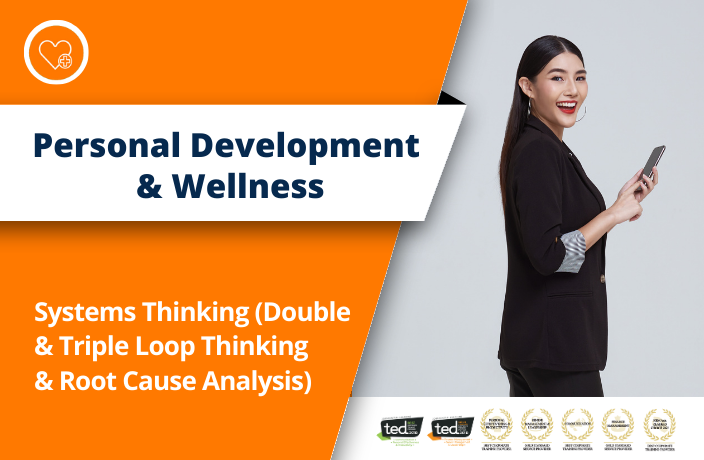Let’s Get Loopy - Systems Thinking (Double and Triple Loop Thinking and Root Cause Analysis)

Course Information
| Start Date | |
| End Date | 24 Oct 2025, Fri |
| Time | 9.00am to 5.00pm |
| Mode | |
| Fee | SGD 680.00 (excluding GST) |
| Contact | Rina | 6720 3333 | training.aventis@gmail.com |
| Register Now | |
| Get In-House Quotation | |
Understanding Systems Thinking and Root Cause Analysis
This programme introduces participants to the core principles of systems thinking and advanced concepts like double and triple loop thinking. Traditional thinking often relies on linear cause-and-effect logic, which may only address surface-level symptoms rather than underlying problems. For instance, taking medication for a headache might alleviate discomfort, but it doesn't address the root cause of the issue. Systems thinking offers a broader perspective, enabling us to identify interconnected components and underlying causes, ensuring problems are resolved at their core.
Mastering Loops for Deeper Insights
Participants will delve into tools and techniques to recognise complex systems and their interactions. They’ll learn how to identify patterns, map out system dynamics, and use double and triple loop thinking to question assumptions and develop transformative solutions. By the end of the workshop, participants will be equipped with practical skills to conduct root cause analysis, approach challenges holistically, and implement sustainable solutions in their professional environments.

